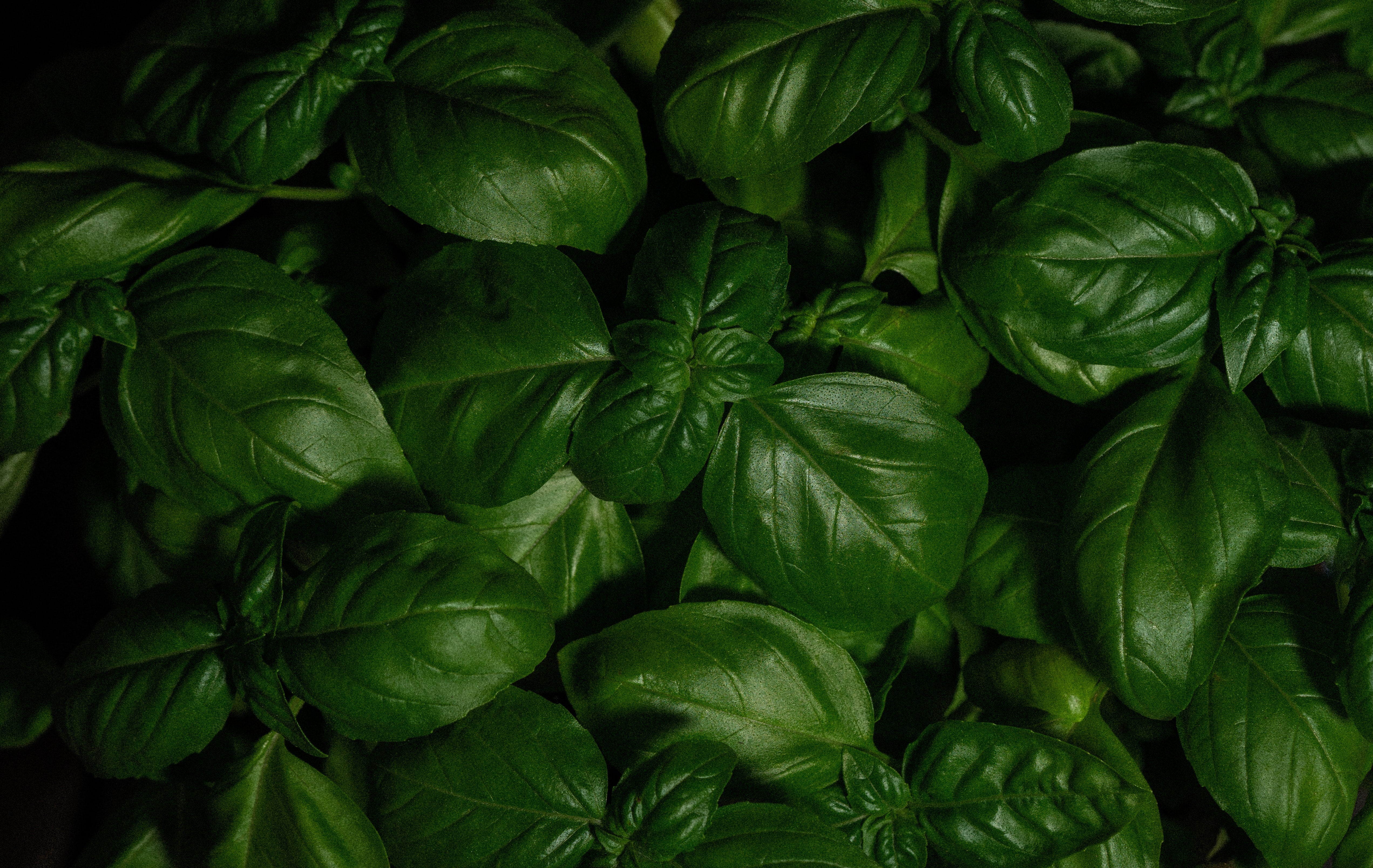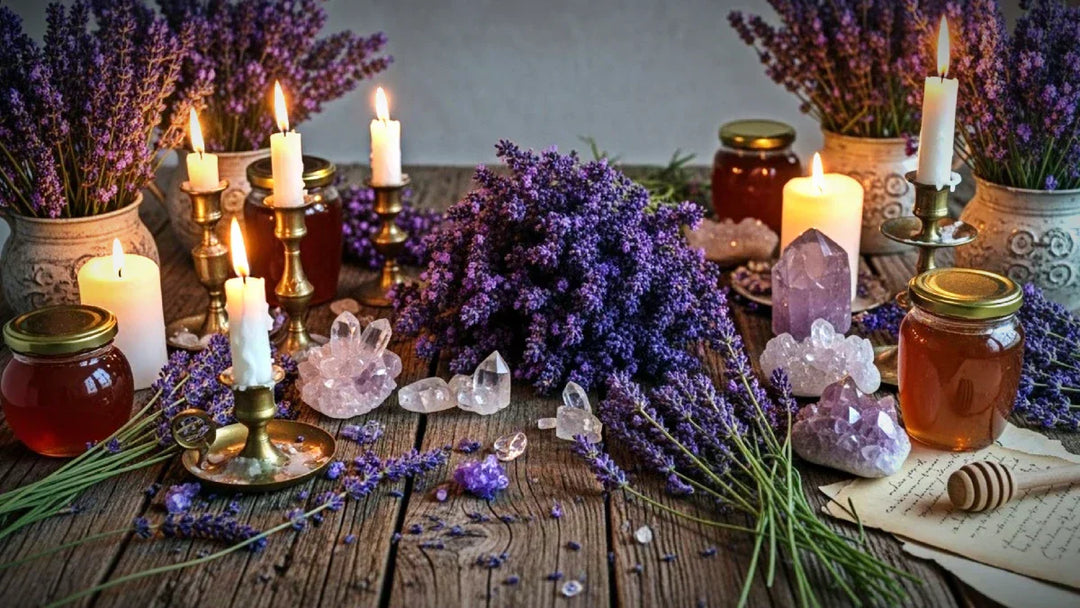When it comes to conjure, Basil is thought to be one of the more versatile kitchen herbs to work with. Known to aid in matters of luck, money, purification, banishment, love and a number of other magical uses, Basil serves as the perfect herb to always keep on hand. It has a vast history with numerous connections to ancient lore. In modern times it continues to be widely utilized for it's powerful effects, and this is certainly true when it comes to kitchen witchery.
History of Basil In Witchcraft
Basil, once believed by the Greeks to have the power to aid in divination, once was used as a means to detect witches. One of the more popular methods employed by the ancient Greeks was to simply name out suspected witches while Basil was being burned. When it made a crackling sound as a name was called, it suggested who was practicing witchcraft. The ancient Hebrews used Basil for courage and strength spells while other middle eastern cultures used it as an herb of mourning.
The ancient Roman's, however, had quite a different take on Basil. The Romans used Basil as a means to curse their enemies. One of their rituals was to curse their enemies as they sowed the seeds. They believed that the more you mistreated the herb, the better it would grow. To ensure a good crop, one was to curse the herb and pray to the gods that the herb would not grow.
In India, on the other hand, both Basil and Holy Basil have is associations to Vishnu and Krishna. It is considered to be a sacred herb and is kept in the home to protect against Evil. It is also believed to have wonderful healing properties. Not only is basil used for it's medicinal properties, it is commonly prayed to.
When it comes to love, Basil also served many purposes. A husband could find out if his wife was unfaithful by having her hold a sprig of basil. If the leaves shriveled, the woman was believed to have been unfaithful. Another common belief maintained that if you smelled basil, you would attract a new lover. And another popular myth that suggested if a young maiden wanted a husband, she merely had to plant some basil and in a years times a new suitor would show up.
In Santeria, Basil can be for purification and luck baths. It is also widely used as a fumigating herb, known to remove spirits from a home. Mixed with passion flower, it can be made into a powerful cleansing bath. It is also commonly used in a number of sacred objects and talismans.
The Best Basil Spells

With so many magickal attributes, the use of Basil in spells can still be used today. Below, I mention a number of them:
Basil Purification Spray:
Simmer cut lemon and fresh basil in water. When cooled and added to a spray bottle, it can be used to clean sacred objects, candles, altars, spaces, the work environment, etc.
Purification Basil Bath:
Mix basil, eucalyptus and rosemary into some epsom or kosher salt. Add 3 tablespoons of this mixture into your bath. To banish bad habits or negative energy, perform a spiritual bath by lighting two black candles at each side of the tub. Mix the salt mixture into a warm bucket of water and pour over your body, from the top of your head to the bottom of your feet.
Basil Exorcism Incense (to remove evil spirits from the home):
Mix basil, rue, hyssop and myrrh and grind to a powder. Burn over a charcoal making sure you fumigated every corner of your home.
Basil Banishing Incense or Banishing Bath (to remove negative people or bad habits)
For a banishment spell, mix basil, pine, lemon peel and Devils Shoestring. Either grind to a powder and burn over charcoal for incense. Or Simmer in water for a bath wash.
Harmony, Love and Forgiveness Basil Incense:
Mix basil, marjoram, lavender and balm of gilead and grind them down to a powder. Burn over a charcoal in the center of the home. This same recipe can be used for reconciliation, particularly if you add a bit of violet.
Basil Spell To Draw in Money:
Carry a basil leaf in your wallet.
Simmer basil, cinnamon and chamomile. Once cool, use as a floor wash for your home and/ or business.
Sources:
Watts, Donald. Dictionary of Plant Lore. Amsterdam: Elsevier/AP, 2007. Print.
Irizarry Jr., Mr. William J., Ewe Osain: 221 Plants, Herbs and Trees essential to the Lucumi tradition. CreateSpace Independent Publishing Platform, 2012. Print
Cunningham, Scott. Cunningham's Encyclopedia of Magical Herbs. St. Paul, MN: Llewellyn Publications, 1985. Print.
Beyerl, Paul. The Master Book of Herbalism. Custer, WA: Phoenix Pub., 1984. Print.






Leave a comment